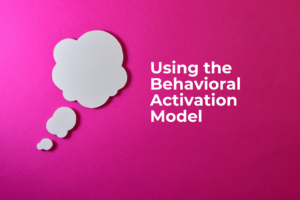Train for Calm: Why Your Nervous System Might Be Sabotaging Your Life After Sports
We trained to be fast.
We trained to be strong.
We trained to win.
But no one trained us to feel safe.
A Simple Guide to Your Nervous System
Discover how your nervous system influences your life and performance. Learn to regulate it for better living.
No one taught us how to slow down, or how to listen to what our body was actually saying when it wasn’t performing.
So we leave the sport.
We step off the field.
We walk away from the job…
And the voice that’s been whispering in the background gets louder:
“Why do I still feel like I’m in danger even when nothing’s happening?”
The Nervous System: Your Body’s Alarm + Reset Button
Your nervous system is the invisible system running your entire life. It controls your breathing, heart rate, digestion, and even your emotional state.
It has two gears:
Fight or Flight (Sympathetic): Gets you ready for action or danger
Rest and Recover (Parasympathetic): Helps you feel calm, safe, connected
In sport, we lived in the fight gear.
We were praised for pushing through pain, staying alert, and ignoring discomfort.
That kind of wiring doesn’t just turn off when the season ends.
Meditation Beginnings
After I left sports, I couldn’t turn my brain off.
I was always thinking about work, fixing something, doing more.
My nervous system was running sprints—while my life had slowed to a jog.
So I tried meditation.
I thought it would be peaceful.
Instead, it made me want to crawl out of my skin.
I couldn’t sit still.
Couldn’t stop thinking.
It was so uncomfortable… and that’s when I knew:
My body didn’t know how to feel safe.
And I had no idea how to help it.
Why This Matters
When your nervous system could be stuck in fight mode, life gets heavy:
You can’t sleep well
You overthink everything
You feel snappy, disconnected, and anxious
You mistake stillness for laziness
You crave control and predictability but nothing feels stable
What Surprised Me Most
Once I started doing the work: meditation, breathwork, time in nature—I realized something I didn’t want to admit:
I was incredibly avoidant.
I didn’t feel safe expressing my emotions.
I had no idea how to sit with sadness, anger, or fear—because I spent years suppressing them.
Why Athletes and Coaches Struggle with This
We weren’t built for balance.
We were built to perform.
So when performance ends, it feels like something’s wrong with you.
But the truth is, your nervous system is just doing what it was trained to do.
The good news? You can train your nervous system the same way you trained your body.
Here are some science-backed ways to help your nervous system chill out:
1. Deep Breathing
Take slow breaths—in through your nose, out through your mouth.
Try 4 seconds in, 6 seconds out.
*Research shows slow exhaling activates your parasympathetic system and reduces cortisol (stress hormone).*¹
2. Meditation
Sit quietly. Close your eyes. Focus on your breath or a simple word.
You don’t need to “clear your mind”—you just need to stay with yourself.
*Studies show meditation reduces anxiety, increases emotional awareness, and strengthens the part of your brain responsible for self-regulation.*²
In the beginning, meditation can feel uncomfortable, especially if you’re used to pushing through everything. But over time, it teaches your nervous system to pause instead of panic.
3. Cold Exposure
Cold showers or plunges can reset your stress response and build tolerance.
Even a splash of cold water on your face helps.
*This activates the vagus nerve, which tells your body “Hey, we’re safe now.”*³
4. Movement (But Make It Gentle)
Not all exercise needs to be intense.
Try walking, yoga, dancing, or stretching.
Movement helps burn off stress hormones and bring your body back to balance.
*Research shows regular movement increases vagal tone (which helps with recovery and calm).*⁴
5. Connection with Safe People
Talking with someone you trust who really sees you can regulate your nervous system.
*Co-regulation (calming down in connection with others) is how we’re wired as humans.*⁵
6. Journaling + Naming Emotions
Writing down how you feel or saying it out loud helps your brain stop the panic cycle.
*Labeling your emotion activates the thinking part of your brain and calms the alarm system.*⁶
Why This Will Change Your Life
A regulated nervous system helps you:
Sleep better
Think more clearly
Make aligned decisions
Communicate with less conflict
Stop reacting out of fear
Feel at home in your own body again
“Peace is the real flex.”
Final Thought
You trained to win.
You trained to lead.
You trained to push past pain.
But what if the next chapter of your life is about training for something else?
Calm. Clarity. Connection. Emotional freedom.
This isn’t about becoming soft.
It’s about becoming whole.
Sources
Porges, S. W. (2011). The Polyvagal Theory.
Kox, M. et al. (2014). PNAS.
Laborde, S., Mosley, E., & Thayer, J. F. (2017). Frontiers in Psychology.
Coan, J. A., Schaefer, H. S., & Davidson, R. J. (2006). Psychological Science.
Lieberman, M. D. et al. (2007). Social Cognitive and Affective Neuroscience
Want Help with This?
I created The Reset Playbook for athletes and coaches who are tired of feeling anxious, overworked, or emotionally stuck after sports.
Inside, you’ll get simple, science-backed tools to:
✅ Regulate your energy and emotions
✅ Reconnect with who you are beyond the titles
✅ Build a structure & routine that feels good again
This isn’t just a workbook. It’s a new foundation.
Because before you build a new life, you need to reset the system running it.
Related Blog Posts
How the Behavioral Activation Model Can Transform Your Post-Athletic Life
Graduating from college and retiring from sports can feel like stepping into an unknown territory.
Essential Reads for Female Athletes Transitioning to a New Career and Life
As a female athlete who has just graduated from college, retired, or is on the
Finding Your Purpose After Athletics
As a retired or soon-to-retire female athlete, the transition from the world of sports to




